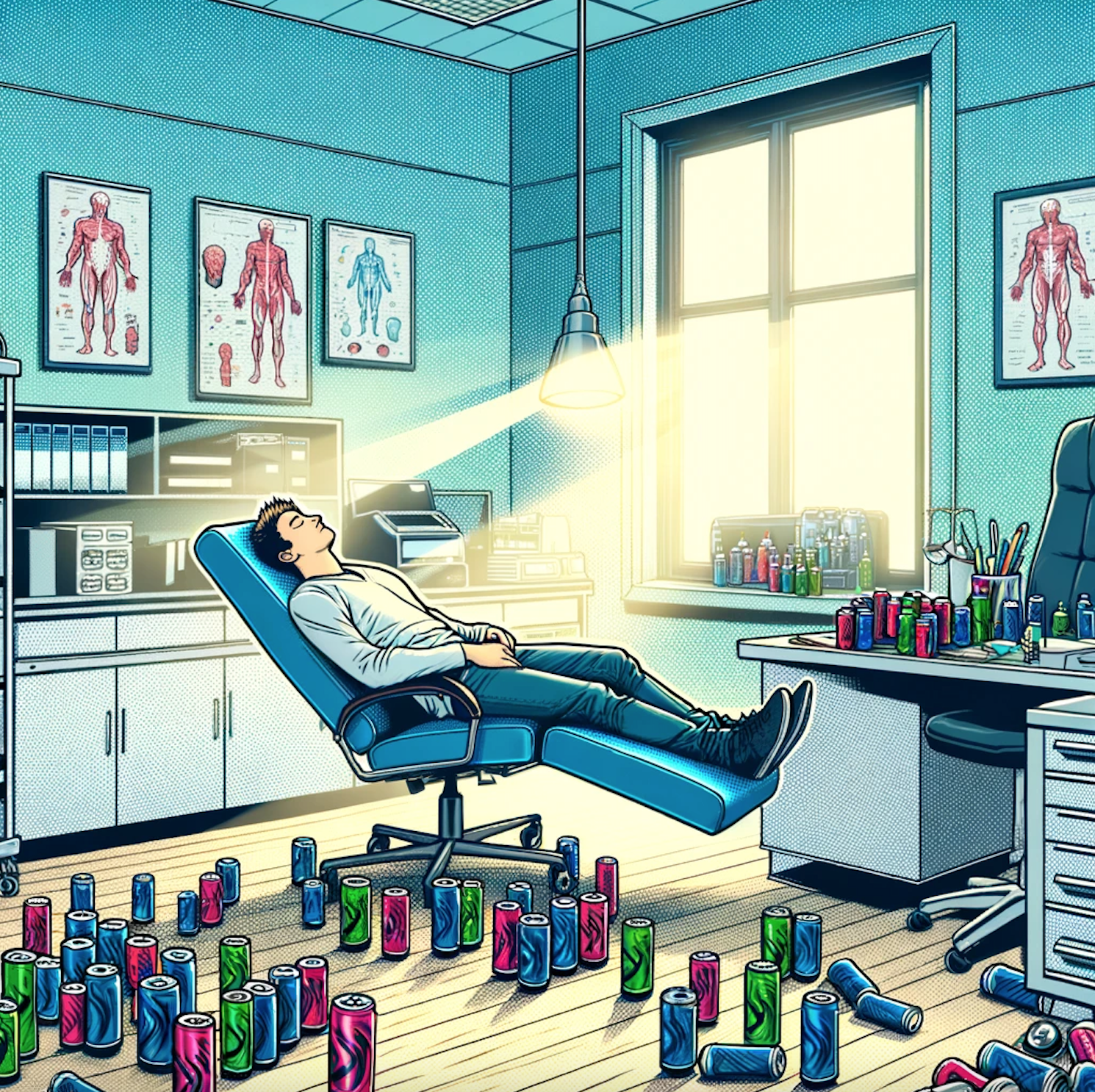Prescription: Sleep
“The moment the alarm goes off is the first test; it sets the tone for the rest of the day. The test is not a complex one: when the alarm goes off, do you get out of bed, or do you lie there in comfort and fall back to sleep? If you have the discipline to get out of bed, you win - you pass the test.“
– Jocko Willink
It’s very important to wake up at the same time every morning, give yourself the best chance to attack the day by getting 7-9 hours of sleep every night. I often meet patients who tell me they’re fatigued and want me to test their testosterone or for autoimmune disease because something must be chemically wrong to feel this tired, this often.
My first inquiry is often sleep - and sleep hygiene. Back in clinic, I opened the door for my 11 o clock appointment to find a young man unconscious on the exam table, lights on, music loud, completely and utterly asleep. He roused himself and we spoke at length. Immediately I noticed his blood shot eyes and bags under both of his eyes; a hunched over appearance as he detailed to me that he’s been falling asleep in random places for quite some time.
He usually sleeps 4-5 hours a night, commutes 3-4 hours a day. He hasn’t fallen asleep at the wheel - yet. All of this while he has been drinking 4-5 coffees a day, 1-2 energy drinks, adderall and preworkout. Something was immediately wrong. This shouldn’t be happening, I’ve seen people his age (35) have a heart attack with those levels of caffeine. The FDA recommends less than 400 mg a day, his regimen was more than twice that, plus an amphetamine!
“Do you have any hallucinations when you sleep?” - Doctor
“.. yeah” - patient
“Do they happen when you fall asleep or when you awake?” - Doctor
“When I fall asleep sometimes.” - patient
Hypnagogic hallucinations. He denied drop attacks. But he may in fact have a type of Narcolepsy. I referred him to Neurology and sleep medicine, recommended he not drive until consultation and further work up was done. Maybe he would benefit from Modafinil, Solriamfetol or Sodium oxybate?
For the rest of us that don’t have a rare disorder, sleeping in the modern age has become a challenge. We are being assaulted by modernism.
Here are the basics of what I recommend to everyone for better sleep.
Sleep hygiene
We recommend you approach sleep in the following ways.
Routine: Have a fixed wake up time and view sunlight for around 15 minutes within the first hour to set your circadian rhythm. Prioritize sleep with a fixed bedtime. Have a regular nighttime routine. Dedicate 30 minutes to something relaxing like reading, stretching or meditating. Keep your surroundings dim. Avoid screens and electronics 1-2 hours before bed. If you’re not falling asleep after 20 minutes, get up and do something relaxing and try again later.
Daily habits: Exercise daily. Avoid smoking, alcohol and drugs . No caffeine after 2-3 pm (half-life is 5-6 hours). Don’t eat dinner late, if you do, make it small. The bed is for sleep and sex only. Limit naps to 9-20 minutes in the early afternoon – try Non-Sleep Deep Rest (NSDR).
Bedroom: Have a comfortable mattress and pillow. Have clean, comfortable sheets. Aim for 65- 68 degrees Fahrenheit. The room should be completely dark. Ear plugs and/or white noise may be helpful. Try lavender scents in the bedroom. An eye mask may be helpful, choose something soft and nonrestrictive. Buy two because when you wash one, you will need one. Try a weighted blanket.
Recommendations: Aim for 7-9 hours of sleep every night. Take a warm bath or shower before bedtime – this will decrease your core body temperature and stimulate sleep.
Start Melatonin and/or Magnesium Threonate nightly. May include valerian, chamomile, and glycine.
Precautions: Avoid checking the time. Restless leg syndrome can affect sleep. Sleep apnea may drop oxygen levels triggering an arousal from sleep.
Find my templates on 𝐂𝐡𝐚𝐫𝐭𝐧𝐨𝐭𝐞 or 𝐀𝐦𝐚𝐳𝐨𝐧!
If you’re ready for the new age of healthcare, where you can walk into a patient room and leave with everything recorded accurately and seamlessly without having to lift a finger to the keyboard - then check out Chartnote’s AI scribe! Affordable, accurate and practice changing!
𝐂𝐥𝐢𝐧𝐢𝐜 𝐂𝐨𝐦𝐩𝐚𝐧𝐢𝐨𝐧: 𝐄𝐬𝐬𝐞𝐧𝐭𝐢𝐚𝐥 𝐓𝐞𝐦𝐩𝐥𝐚𝐭𝐞𝐬 𝐟𝐨𝐫 𝐏𝐫𝐢𝐦𝐚𝐫𝐲 𝐂𝐚𝐫𝐞!
